It is a rare town or city that does not have some sort of panhandler operating in its vicinity – whether it is a street entertainer, a charity fundraiser or homeless person asking for money. More than a third of the public (35%) says they wouldn’t stop for anyone in the street – even someone who is asking for directions.
Someone who is lost would have a better than 50:50 chance of getting directions from a stranger – 56% of Americans say they would stop for someone to give them directions. Kids selling goods might be able to talk to a quarter of people in the street, as 26% indicated they would stop for a child selling something.
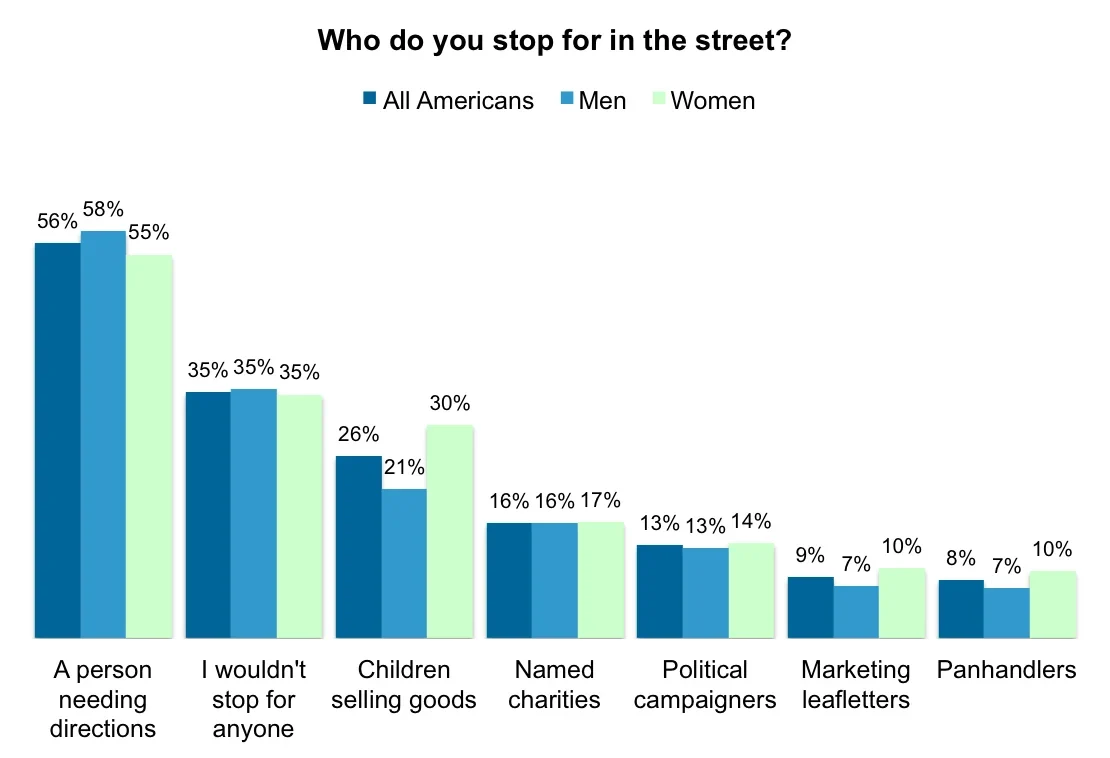
Most wouldn’t stop for charity
Just 16% would stop for a registered charity, and 13% for a volunteer political campaigner. Panhandlers – people begging for change on the street – garner the least attention from passers by, as only 8% of Americans would stop for them in the street. Although more men (58%) than women (55%) would stop for a person in need of directions, more women (30%) than men (21%) would stop and talk to a child selling something.
A stranger in the street is least likely to get a young woman to stop and talk to them, as this age group was least likely to say they would talk to someone . 48% of females aged 18-34 said they wouldn’t stop and talk to a stranger in the street, compared with 25% of women aged over 55 who would refuse to talk to someone, making them the most outgoing age and gender group.
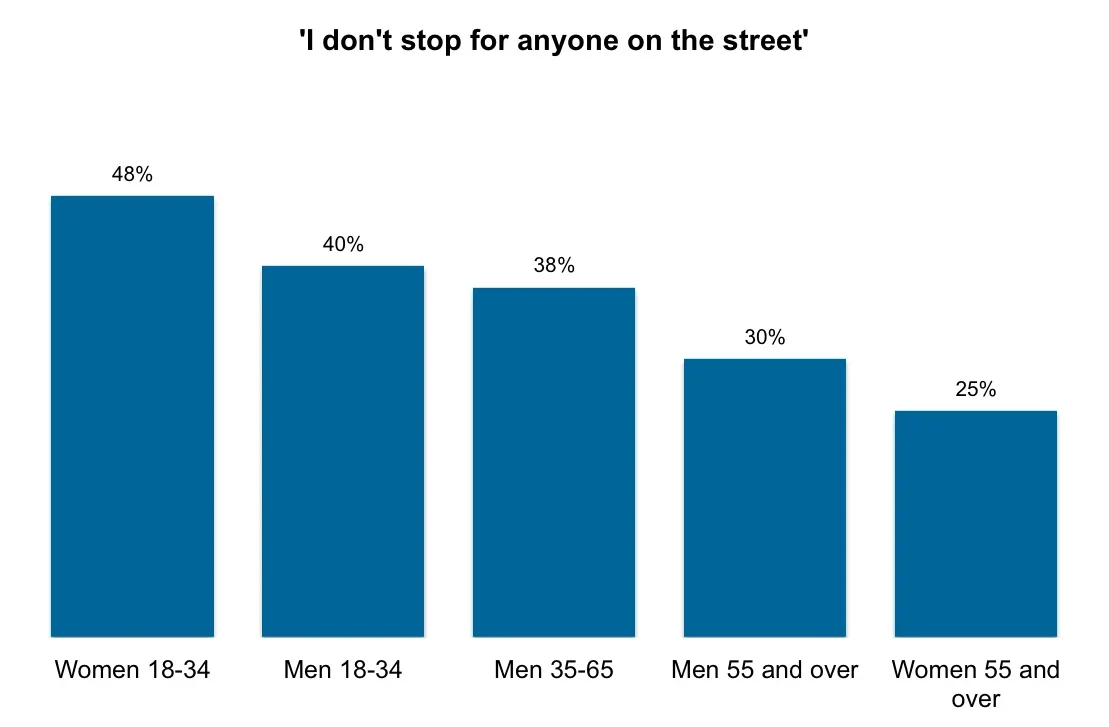
A war veteran asking for money on the street is most likely to get Americans to part from their cash. While 37% said they wouldn’t give money to a panhandler at all, another 37% said they would give cash to a veteran.
31% would take pity on a woman with a young baby or children, although if a man or woman had a pet dog only 9% would give them money. 22% would fork out for someone who offered a street entertainment routine, such as dancing, miming or playing music.
A young woman on her own (10%) and someone sitting quietly with a jar (13%) would also be likely to receive some change from a stranger.
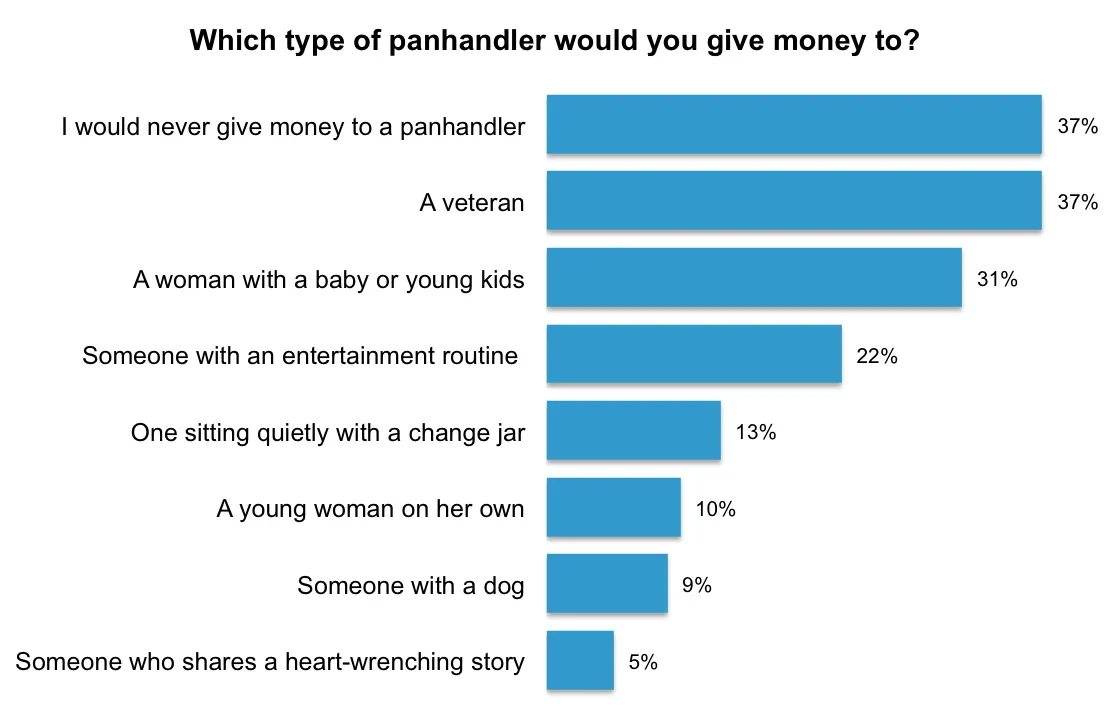
Panhandlers might be able to expect loose change from a stranger – while 3% said they are likely to give $10 or more to someone asking for money on the street, 16% would give less than a dollar and 17% a dollar to someone in need.
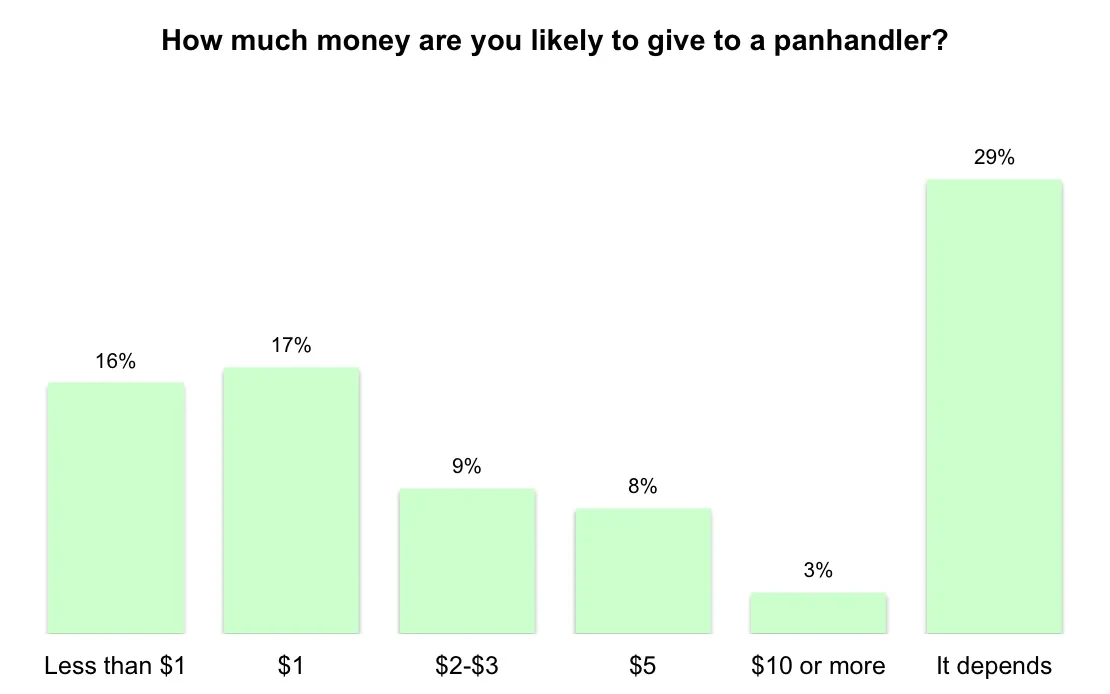
While many of us are happy to donate to a good cause or show kindness to a stranger, sometimes panhandling can come across as pushy or even threatening. Aggressive tactics from some charity fundraisers on the street have earned them the nickname of charity ‘muggers’ or ‘chuggers’.
71% of Americans said they are often cautious of a stranger who approaches them in the street, although 15% said they would see it as friendly if someone went up to them in public. 9% find being approached pleasant, while 9% are also intrigued about what the stranger has to say.
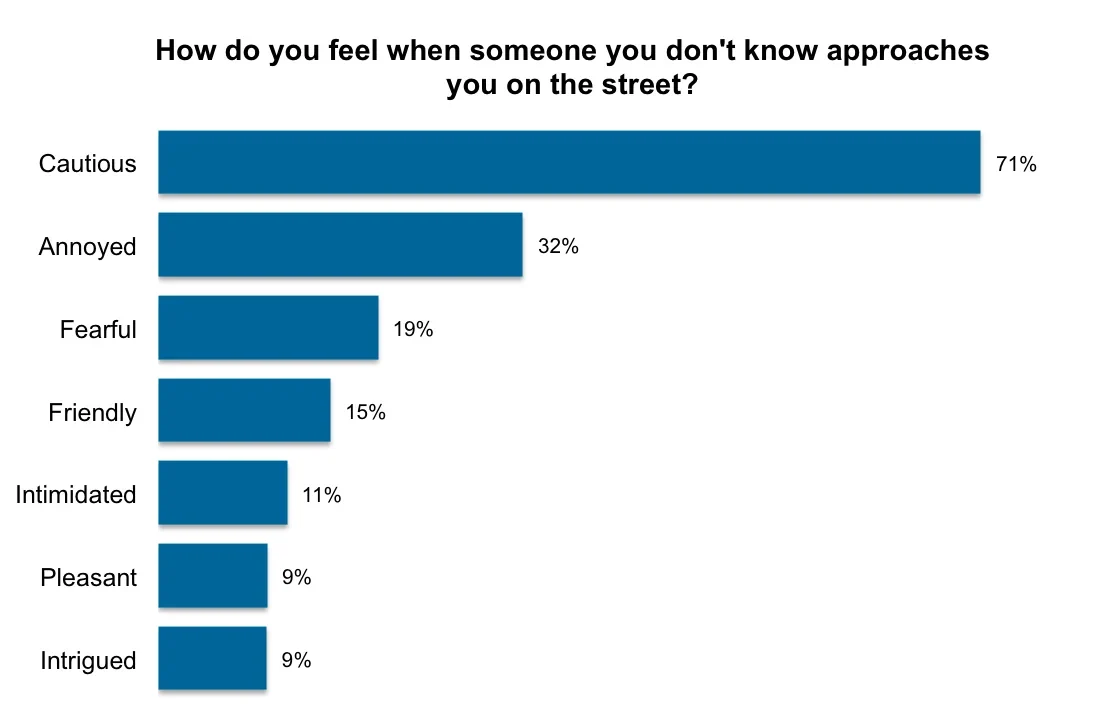
Women and younger people tend to be more cautious of strangers – 25% of women said they felt fearful when someone approached them, compared with 13% of men. 11% of Americans aged 55 and over felt friendly if someone went up to them, and feeling is mutual for 18% of 18-34 year olds. But millenials are also more likely to feel fearful of a stranger – 23% of 18-34 year olds compared with 18% of over-54s.
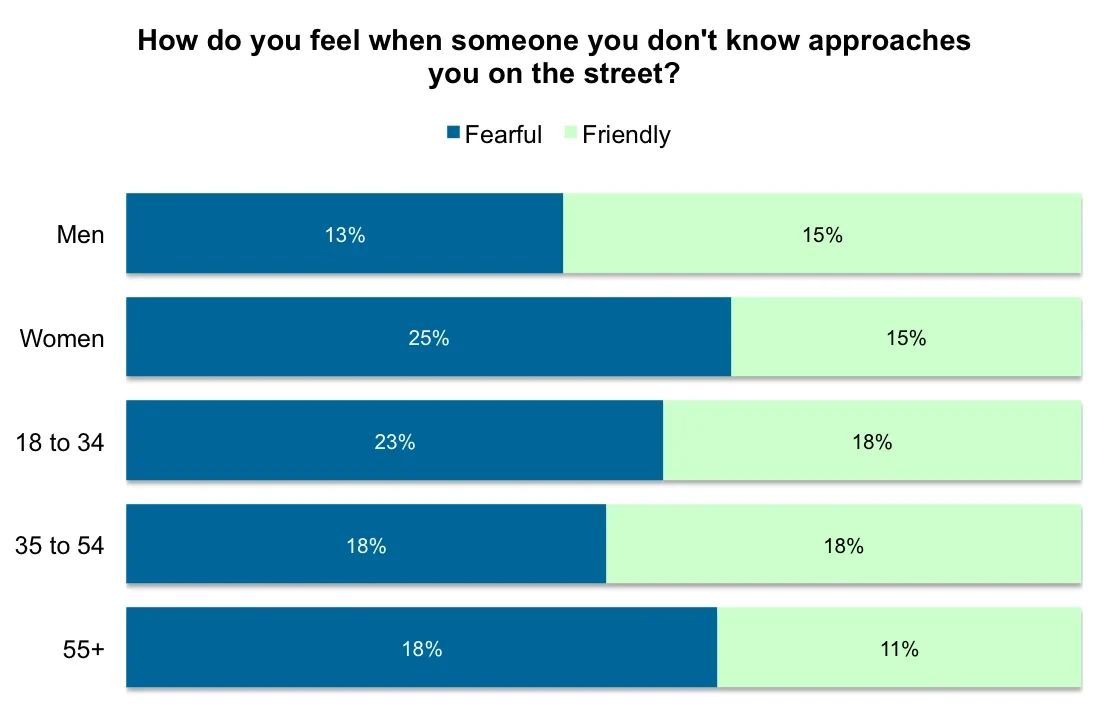
For further information about poll results, and for details about methodology and Omnibus research services, please email omnibus.us@yougov.com.
Click here for full results.
Image: Getty.









